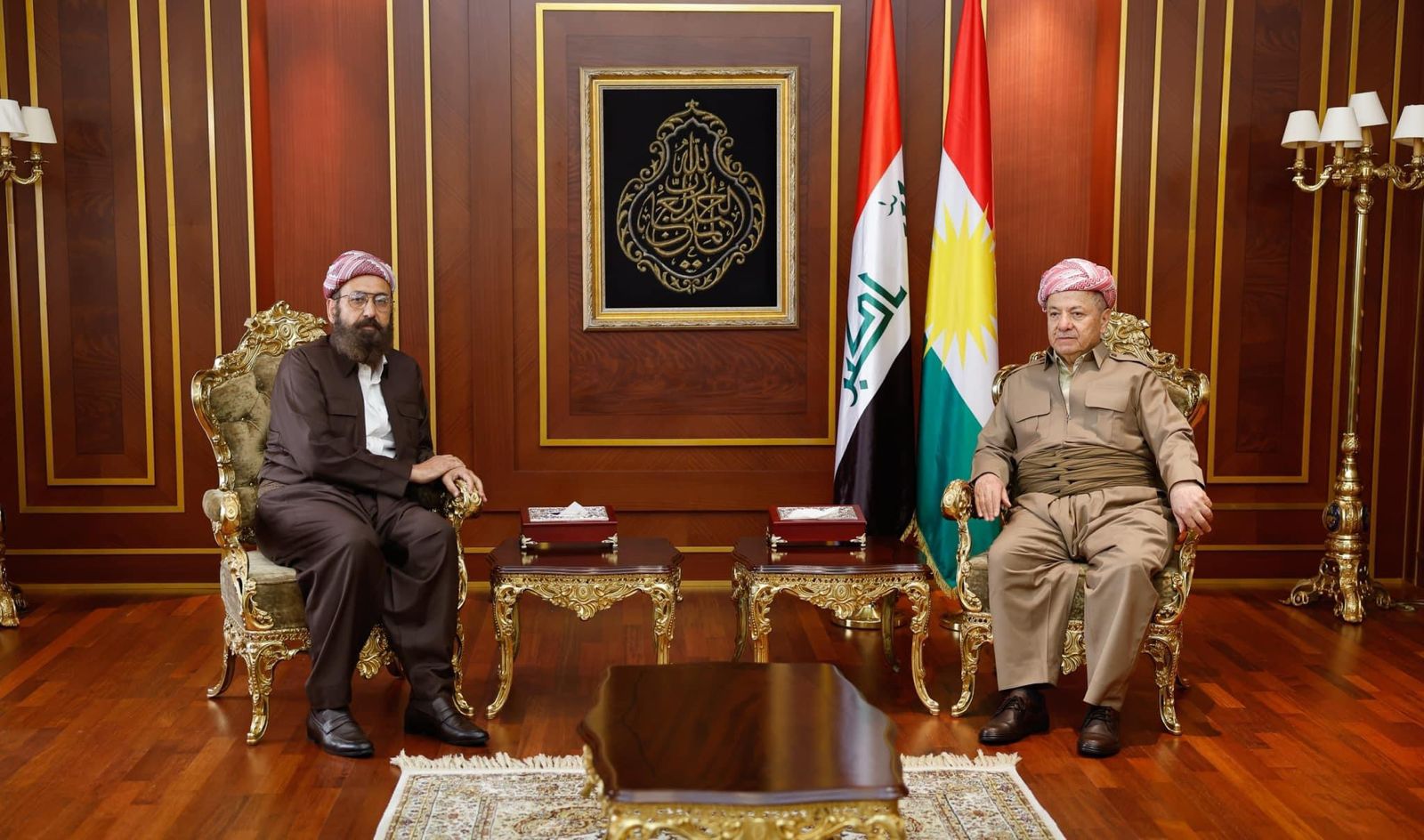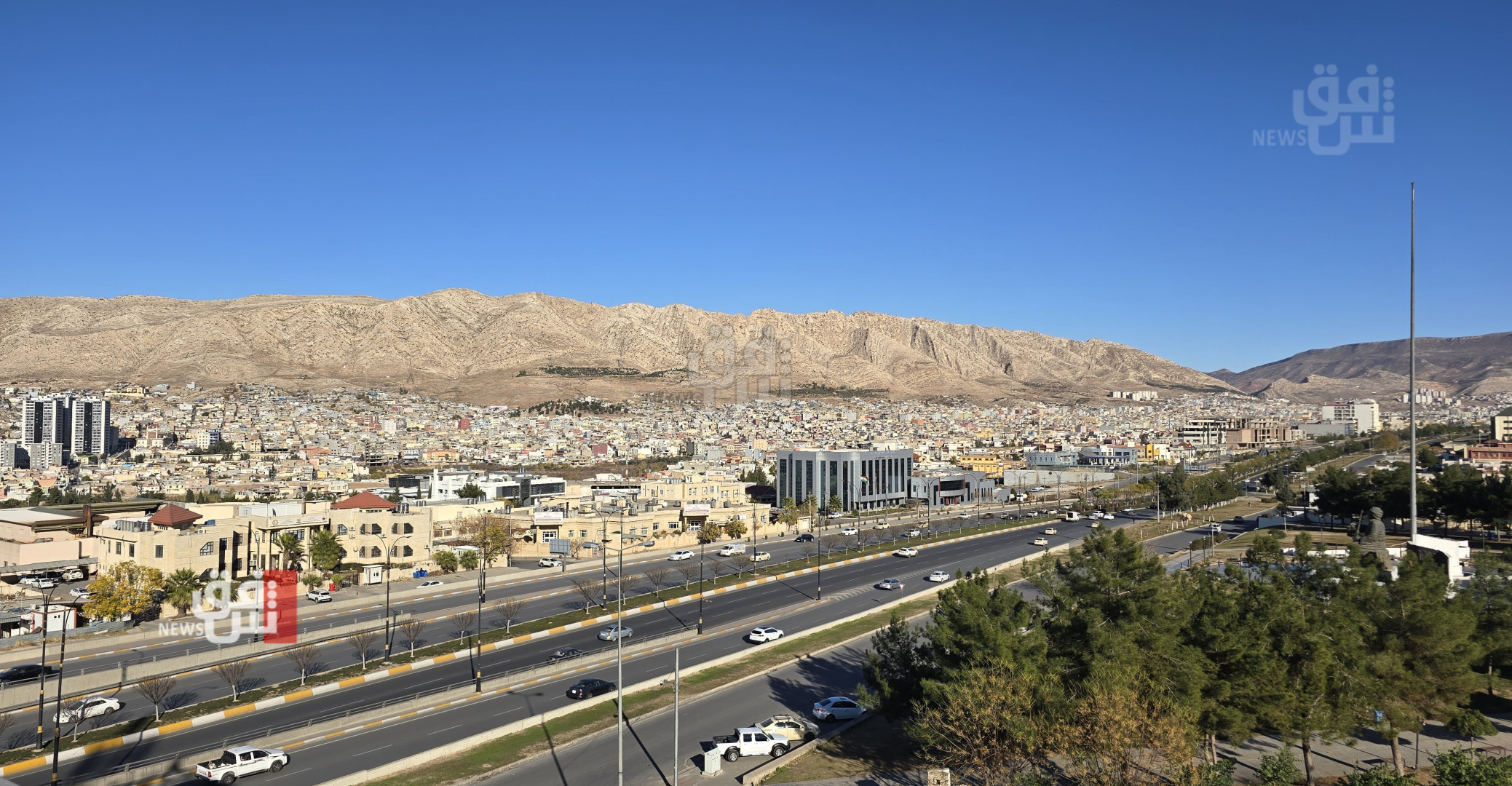Leader Barzani affirms Yazidis' integral role in Kurdistan

Shafaq News/ The head of the Kurdistan Democratic Party (KDP) leader, Masoud Barzani, met, on Sunday, a delegation of the Yazidi community headed by Hazim Tahsin Beg, the Mir (Prince) of the Yazidis.
According to Barzani's headquarters, during the meeting, the delegation thanked Barzani for his "constant support for the Yazidis and his concern for unity and solidarity among them," calling for supporting their demands.
Leader Barzani stressed the deep-rooted connection between the Yazidis and the Kurdistan people. He cautioned against "foreign voices that seek to influence Yazidi affairs or lead them away from their ancestral homeland," urging them to "remain steadfast in their identity and values."
Addressing concerns about some officials in Baghdad intervening in Yazidi affairs and appointing a Yazidi Mir, Barzani reassured the delegation that he would not allow "foreign agendas to disrupt the unity and cohesion of the Yazidi community."
The Yazidis, a Kurdish-speaking minority, endured persecution by ISIS following the group's takeover of large areas in Syria and Iraq starting in 2014.
In recognition of the Yazidi New Year, celebrated on April 17, 2024, the Kurdistan Regional Government (KRG) has declared it a public holiday in the Kurdistan Region.
The Yazidi community in Iraq is composed of around 500,000.
According to UNESCO, the Yazidis are an essential ethnic component of the Iraqi mosaic through its long march and international covenants that affirmed the rights of indigenous peoples, including the United Nations Declaration of September 13, 2007, which came in (and realizing the urgent need to respect and promote the natural rights of indigenous peoples derived from their political, economic and social structures and their cultures, spiritual traditions, history, and its philosophies, especially their rights to their lands, territories, and resources.


